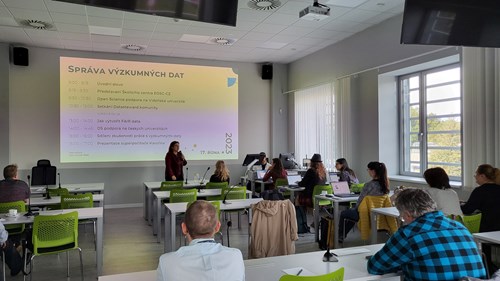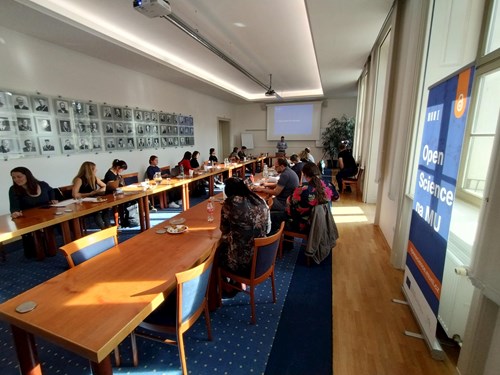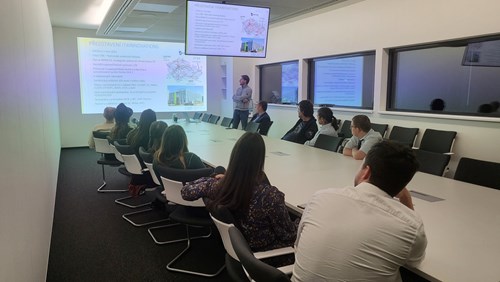During Open Science Week 2023, institutions from across the Czech Republic collaborated to provide current and engaging information on open science to scientists, academics, and the general public. Jiří Marek, the Head of the EOSC-CZ Secretariat, kicked off the week with an online lecture, introducing the EOSC European initiative and highlighting key developments in research data management for 2024. He also discussed the evolution of EOSC in Europe and its role in promoting open science principles and the establishment of a National Data Infrastructure for Czech scientists.
„The launch of EOSC in its operational phase will have a profound impact on the day-to-day scientific endeavors of researchers, spanning both European and national contexts. It is essential, during this critical period, to collectively strategize and deliberate on the national approach to EOSC. Events such as Open Science Week 2023, organized by the Czech Library Association, serve as an apt forum for this purpose,” said Marek.
On Tuesday, at the Technical University in Ostrava, experts in Open Science addressed the issue of research data management. During the morning session, Karina Pešatová, the Head of the Training Centre at the EOSC-CZ Secretariat, provided a comprehensive presentation on the Training Centre's significance and activities to the attendees. Pešatová emphasized: "Education and raising awareness play a crucial role in the successful implementation of EOSC. Data management and sharing are relatively novel concepts within the academic realm, necessitating thorough explanations of various aspects of the field."
On the third day of the event, the focus of the Czech Open Science community shifted to Brno, where discussions revolved around legal aspects. A presentation by Michala Daňková from Brno University of Technology highlighted the importance of software and dataset licensing in the context of facilitating quality research. Many components of the above-mentioned National Data Infrastructure will rely on Open Source, and well-defined licensing conditions are crucial for the forthcoming implementation of EOSC in the Czech Republic. Other speakers also focused on the interplay between legal considerations and the dissemination of scientific research findings. Thursday's events during Open Science Week were held in Liberec, with the primary topic being Open Access – the practice of making scientific articles, books, and data available freely or with minimal restrictions.
The week reached its peak in Olomouc, with a program dedicated to citizen science and the scientific community. Valentýna Drtinová, the main organizer of Open Science Week 2023 from the Association of University Libraries in the Czech Republic, stressed the significance of such collaborations in the realm of 21st-century science. What set this year's Open Science Week apart was the distribution of topics among various universities under the umbrella of the Association of Libraries of the Czech Republic. Consequently, the audience had access to a wide range of interesting lectures, including topics that are often overlooked, such as Citizen Science. Drtinová highlighted: "The impact of research on society and the involvement of society in research is a crucial facet of EOSC implementation, not only in the Czech Republic."
Open Science Week, following the international event of the same name, is traditionally dedicated to advocating the principles of open science within the academic community. While it has been established in the Czech Republic since 2008, it's only this year that, thanks to the efforts of the Association of Libraries of the Czech Republic, ten Czech universities were able to unite in this effort. Open science has evolved from a theoretical concept into an indispensable component of contemporary scientific research.







